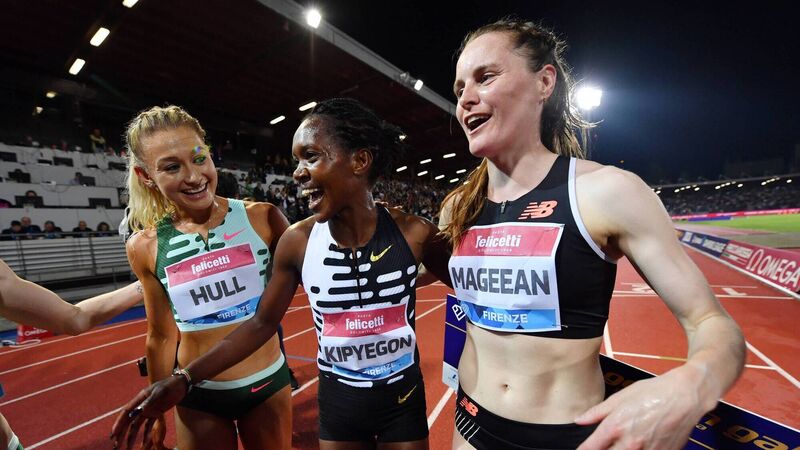Keep the Faith? Kipyegon on breaking world records and Kenya's anti-doping battle

RESPECT: Faith Kipyegon of Team Kenya is congratualted by Jessica Hull of Team Australia and Ciara Mageean of Team Ireland after victory in the Women's 1500m during the Golden Gala Pietro Mennea in Florence. Picture: Valerio Pennicino/Getty Images
They say that to win Olympic gold, you have to beat everyone who shows up on the day. To set a world record, you have to beat everyone who’s ever shown up. Faith Kipyegon has no need to argue which of those is the bigger achievement, given she’s done both multiple times.
The 29-year-old Kenyan is a two-time Olympic champion and double world champion over 1500m, and this summer, she’s gone on a world record rampage, setting the fastest female times in history over 1500m (3:49.11), 5000m (14:05.20) and the mile (4:07.64).











